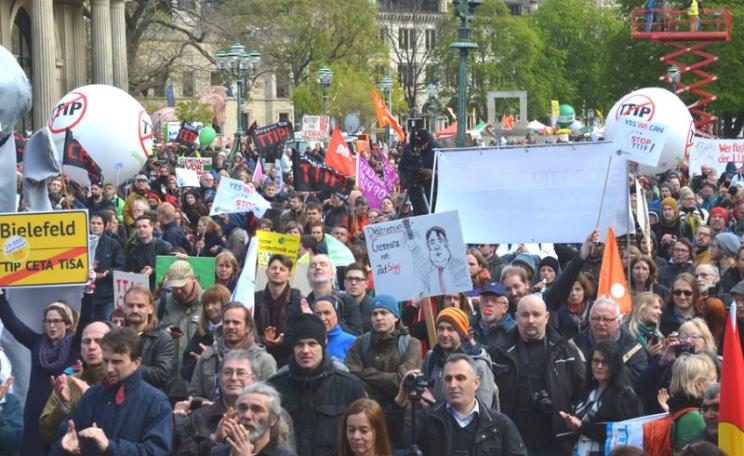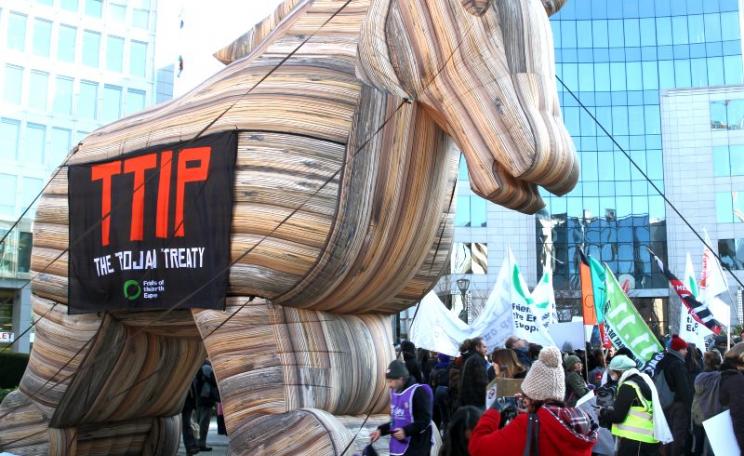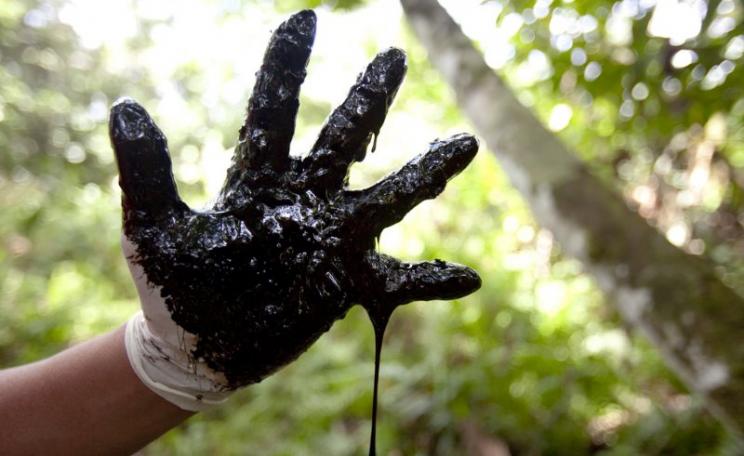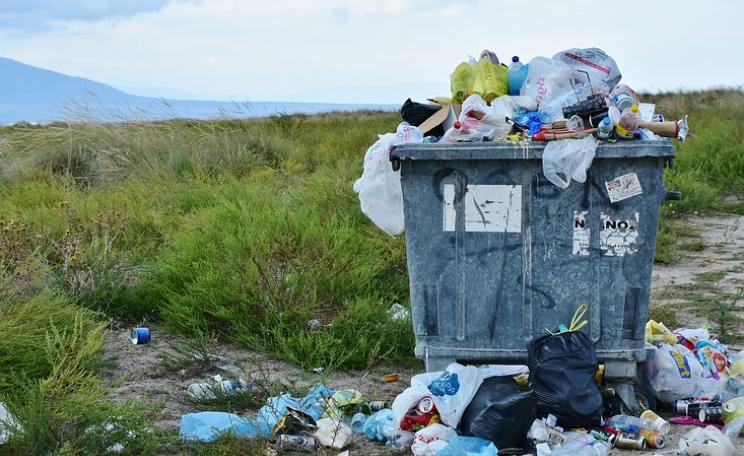Coming just months after COP21 and days after the signing of the Paris Agreement, the TTIP texts carry an extraordinary omission: climate change. Nothing indicating climate protection can be found in the obtained texts.
Greenpeace Netherlands has released a huge cache of secret documents from the EU-US Transatlantic Trade and Investment Partnership (TTIP) negotiations on its specially created ttip-leaks.org website.
The leaked papers show that EU negotiators are prepared to drop hard won environmental protections to secure a deal, while measures to tackle climate change would be trumped every time by trade and investment rules.
In addition the 'precautionary principle' is abandoned in favour of a US-style 'risk based' approach to health and environmental regulation on chemicals, drugs, GMOs and other potential hazards, while environmental and consumer protection are consistently sidelined in favour of big business.
"These documents make clear the scale and scope of the trade citizens of the United States and the European Union are being asked to make in pursuit of corporate profits", said Sylvia Borren, Executive Director Greenpeace Netherlands.
"It is time for the negotiations to stop, and the debate to begin. Should we be able to act when we have reasonable grounds to believe our health and wellbeing is at risk, or must we wait until the damage is done?"
According to BBC News today, France's trade minister Matthias Fekl said a freeze in the TTIP talks was the "most likely option in view of the United States' state of mind today", adding that Europe was offering a lot with little in return.
"It is an agreement which, as it would be today, would be a bad deal", he said on French radio, commenting on the leaked papers. "It cannot be agreed without France and even less so against France."
Climate change, environmental protection omitted
Coming just months after COP21 and days after the signing of the Paris Agreement, the TTIP texts carry an extraordinary omission: climate change. Nothing indicating climate protection can be found in the obtained texts, indicating that where climate protection clashes with any provision that is in the text it will be overruled.
Worse, the scope for climate mitigation measures is directly limited by provisions of the chapters on Regulatory Cooperation or Market Access for Industrial Goods. As an example these proposals would rule out regulating the import of CO2 intensive fuels such as oil from Tar Sands.
"Were our governments serious in Paris when they said they would do what was necessary to protect the planet, and keep climate change under 1.5 degrees?", asks Borren.
In addition none of the chapters appear to reference the so-called 'General Exceptions' rule. This nearly 70-year-old rule enshrined in the GATT agreement of the World Trade Organization (WTO), allows nations to regulate trade "to protect human, animal and plant life or health" or for "the conservation of exhaustible natural resources".
Coming just months after COP21 and days after the signing of the Paris Agreement, the TTIP texts carry an extraordinary omission: climate change. Nothing indicating climate protection can be found in the obtained texts.
The omission of this regulation suggests both sides are deliberately creating a regime that systematically places profit ahead of human, animal and plant life and health, and the future of our planet itself.
The end of the precautionary principle?
The precautionary principle, enshrined in the EU Treaty, is not mentioned in the chapter on Regulatory Cooperation, nor in any other of the obtained 12 chapters.
Detailed in Article 191 of the Treaty on the Functioning of the European Union (EU), the Principle aims at ensuring a high level of environmental protection through preventative decision-taking in the case of risk. That means, for example, that there should be strong evidence that a new chemical or genetically modified seed should be safe in the environment before it may be released.
Instead, taking the place of the precautionary principle is the 'risk based' approach adopted by the USA that aims to manage hazardous substances rather than avoid them, as explicitly cited in various chapters.
According to Greenpeace, "This approach undermines the ability of regulators to take preventive measures, for example regarding controversial substances like hormone disrupting chemicals. Environmental protection should not be seen as a barrier to trade, but as a safeguard for our health, and the health of future generations."
Opening the door for corporate takeover
While the proposals threaten environmental and consumer protection, big business gets what it wants. The document contain proof that corporations were invited to participate in formulating negotiating positions and permitted to intervene from the earliest stages of the decision making process.
"While civil society has had little access to the negotiations, there are many instances where the papers show that industry has been granted a privileged voice in important decisions", says Greenpeace.
"The leaked documents indicate that the EU has not been open about the high degree of industry influence. The EU's recent public report has only one minor mention of industry input, whereas the leaked documents repeatedly talk about the need for further consultations with industry and explicitly mention how industry input has been collected."
Sylvia Borren commented: "We call on the negotiators to release the latest, complete text to facilitate that discussion, and we ask that the negotiations be stopped until these questions, and many more have been answered. Only then can we fully engage in a debate about the standards we and our planet need and want."
The documents - what's there?
The documents that Greenpeace Netherlands has released comprise about half of the draft text as of April 2016, prior to the start of the 13th round of TTIP negotiations between the EU and the US (New York, 25-29 April 2016).
As far as we know the final document will consist of 25 to 30 chapters and many extensive annexes. The EU Commission published an overview stating that they have now 17 consolidated texts. This means the documents released by Greenpeace Netherlands encompass three quarters of the existing consolidated texts.
Consolidated texts are those where the EU and US positions on issues are shown side by side. This step in the negotiation process allows us to see the areas where the EU and US are close to agreement, and where compromises and concessions would still need to be made.
Of the documents released by Greenpeace Netherlands, in total 248 pages, 13 chapters offer for the first time the position of the US.
More information and documents: ttip-leaks.org.
Action: 'Demand a vote on TTIP and CETA' by Global Justice Now.
Oliver Tickell is Contributing Editor at The Ecologist.







